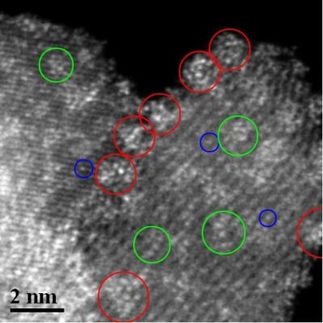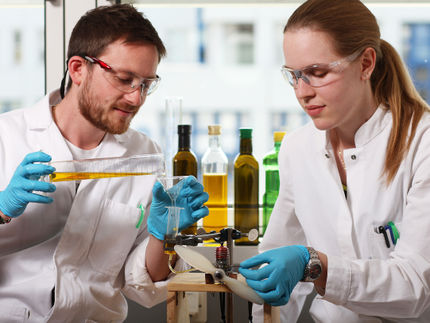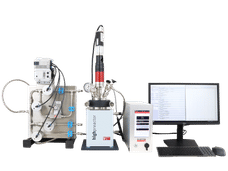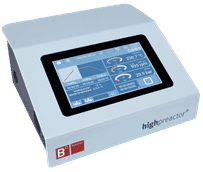New Research Suggests Biofuel Blending is Often Inaccurate
Study of Retail Biofuel Samples Suggests National Standards May Be Needed
Advertisement
While sampling blended biodiesel fuels purchased from small-scale retailers, researchers at the Woods Hole Oceanographic Institution found that many of the blends do not contain the advertised amount of biofuel.
Marine chemist Chris Reddy and colleagues sampled pure biodiesel and blends from more than a dozen distributors across the United States. When testing fuels listed as 20 percent biodiesel (commonly known as B20), they found that the actual percentage of biofuel ranged from as little as 10 percent to as much as 74 percent. Only 10 percent of samples met the specifications for biofuel blends required for vehicles of the U.S. Department of Defense, one of the leading consumers of the products.
Pure biodiesel (B100) is a chemically prepared mixture of animal fats and vegetable oils, and it is often used in modified diesel engines. Biodiesel "blends" combine B100 with traditional petroleum-based fuels in a manner that allows them to be used in regular diesel engines. Retailers commonly sell blends that are 20 percent biodiesel (B20) or 5 percent (B5), while all diesel fuels sold in Minnesota are actually B2 (2 percent biofuel), in accordance with state standards.
Proponents of such fuels claim that they are more environmentally friendly because they emit less pollution-such as sulfur, particulates, and hydrocarbons-and may be less toxic for the environment when spilled.
"Biodiesel is a great product if used properly, and it could turn out to be an important alternative fuel," said Reddy, an associate scientist in the WHOI Department of Marine Chemistry and Geochemistry. "There is a lot of good feeling about biodiesel, but if we are going to sell it, we have to make sure what is being sold is accurately prepared. It is a matter of credibility and consumer confidence."
Reddy and colleagues happened upon the discrepancy while studying the potential effects of a biodiesel spill in the marine environment. The new research was published online on February 27 in the journal Environmental Science and Technology.
Biodiesel blends are often made by local distributors through simple "splash blending," whereby ingredients are poured together into a container in their respective amounts. The intent is that the simple act of pouring will ensure proper mixing.
But biodiesel is naturally thicker and more viscous than petroleum-based diesel, so it may be settling into separate layers within fuel tanks. Reddy and colleagues also pointed to simple human error - poor math, measurement, or stirring - as a possible reason for the inconsistencies.
Improper blending of biofuels could lead to engine problems from drivers in cold climates, Reddy noted, because it could freeze or clog fuel lines. Most auto manufacturers recommend against using mixtures greater than B20, though the reasons are unclear.
Reddy believes the discrepancies could harm consumer confidence in the product, which is sometimes sold at a premium price over traditional petroleum fuels. There could also be financial issues related to taxation and tax credits for biofuel providers and consumers.
The United States currently has a voluntary standard for proper preparation of blended fuels, but no enforcement. The nation does have an enforceable standard for pure biodiesel.
The new fuel blending research builds on a 2004-2005 study by the National Renewable Energy Laboratory that suggested some national-scale manufacturers were having a hard time producing proper blends of biofuel.

































































